Best Types of Mulch for Your Vegetable Garden
Enrich your squash and tomatoes with the extra nutrients they need


If you started your vegetable garden with unbounded promise and enthusiasm, only to find yourself spending your Saturday afternoons pulling weeds, you might be missing a critical veggie garden component: mulch. But to keep weeds at bay and your soil consistently moist, you don’t want just any mulch. Learn about the best mulch for vegetable gardens for juicy tomatoes, crunchy green beans, and more.
Keep in mind that it’s best to mulch your vegetable garden twice a year—in the spring and again mid-season—to keep your garden looking its best. Before you run to the garden center, calculate how much mulch you need so you don’t lug home extra bags. On average, mulch costs between $30 and $120 per cubic yard when you opt for professional installation.
A soil test can tell you specific nutrients your soil needs in order to grow plants and grass. For example, a clay or marshy soil could mean your plants take longer take root and grow, which is important information to have when starting your project.
1. Leaves
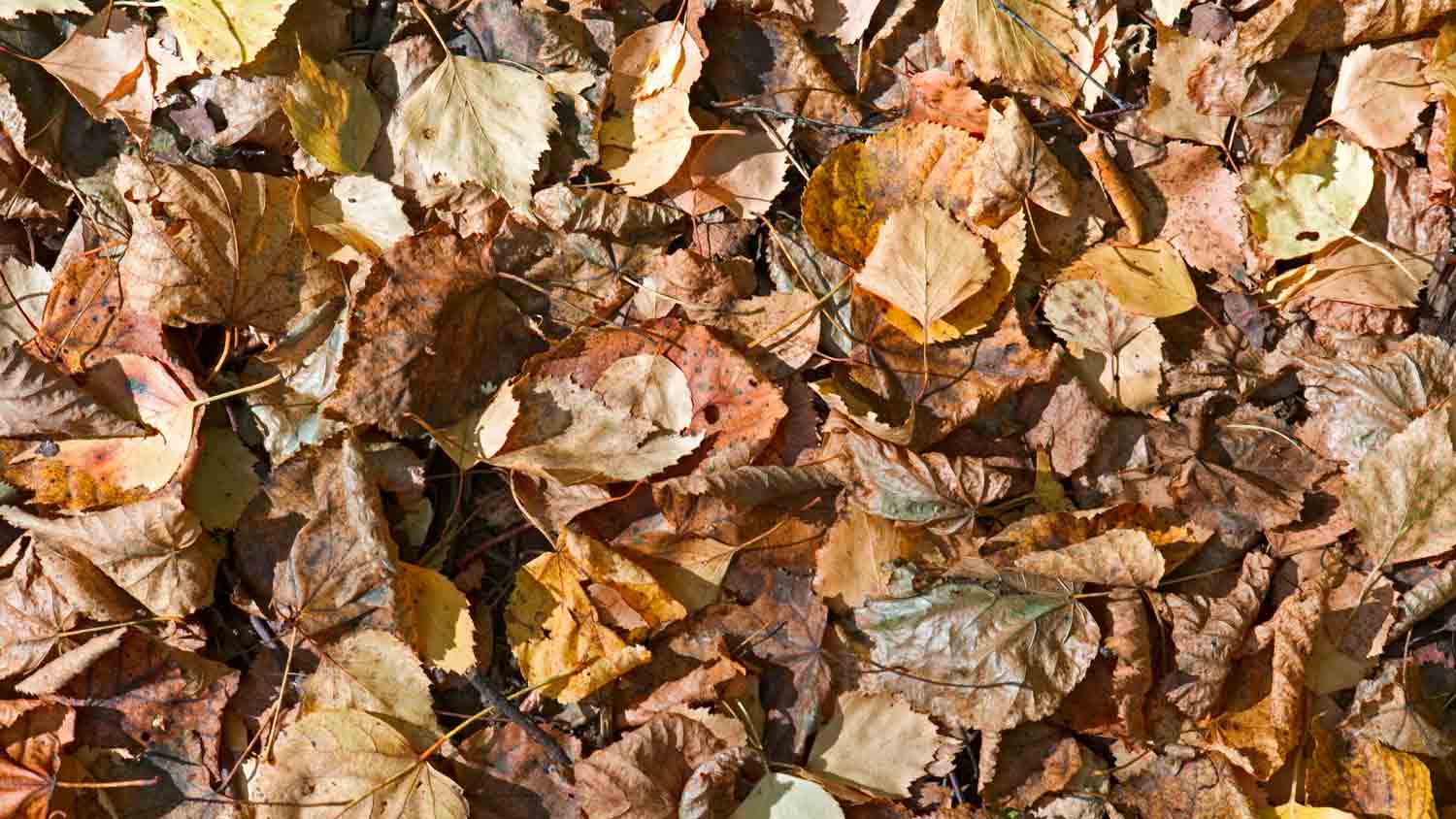
You can use all those leaves lying around your lawn as a garden mulch. However, you’ll want to make sure they’re shredded, or they may keep water from passing through into your soil. You have to rake your leaves anyway, so why not turn them into nutrient-rich mulch?
| Pros of Leaf Mulch | Cons of Leaf Mulch |
|---|---|
| Low cost in the fall | Requires a lawn mower to break up the leaves |
| Encourages earthworms | Requires multiple layers |
| Insulates against the cold | Can blow or wash away |
| Prevents mold and veggie disease | Can block sunlight from reaching the soil |
| Helps the soil retain moisture |
2. Grass Clippings
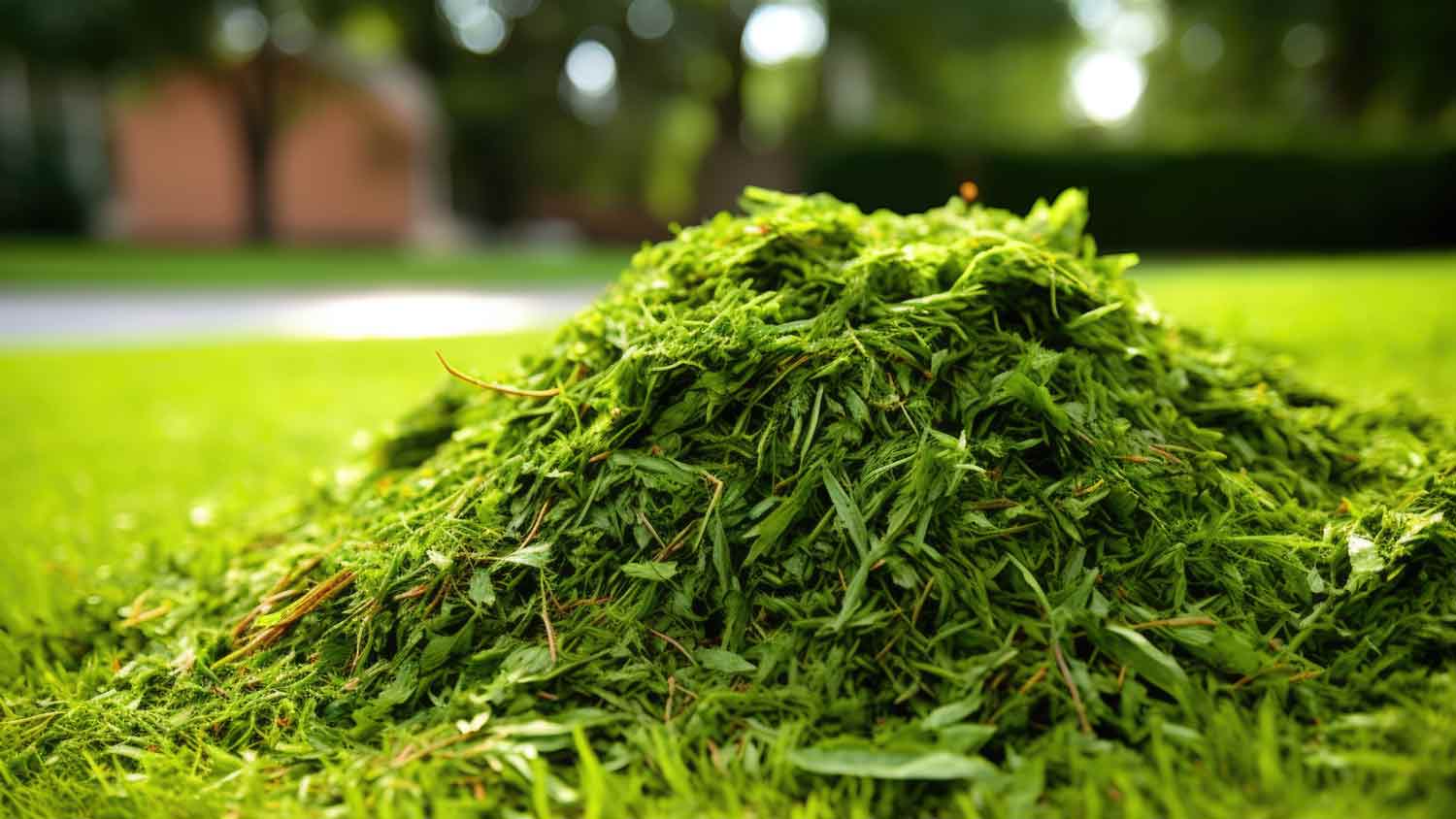
Grass clippings are easy to come by and happen to be one of the most popular organic mulches. When comparing organic mulches versus rocks, for example, grass clippings, leaves, wood, and hay break down to add nutrients, while rocks only assist with drainage and erosion.
When it comes to grass clipping mulch, just take the bag on your lawn mower and empty the leaves into your garden. Grass clippings are also great for keeping weeds down, and they break down and provide nutrients more readily than many other types of mulch.
However, you shouldn’t apply grass clippings that have been recently treated with pesticides, which can harm your plants, or fertilizer, as the amount of nitrogen in grass fertilizer is too high for most produce. Finally, note that any weeds that were in your lawn will make their way into your garden.
| Pros of Grass Mulch | Cons of Grass Mulch |
|---|---|
| Low cost throughout the year | Too thick a layer can prevent airflow |
| Insulates the ground in the cold | Can’t be used when treated with pesticides or fungicides |
| Discourages weed growth present in the garden | Can spread weeds from your lawn |
| Adds nutrients to the soil | Requires multiple layers |
3. Bark or Wood Chips
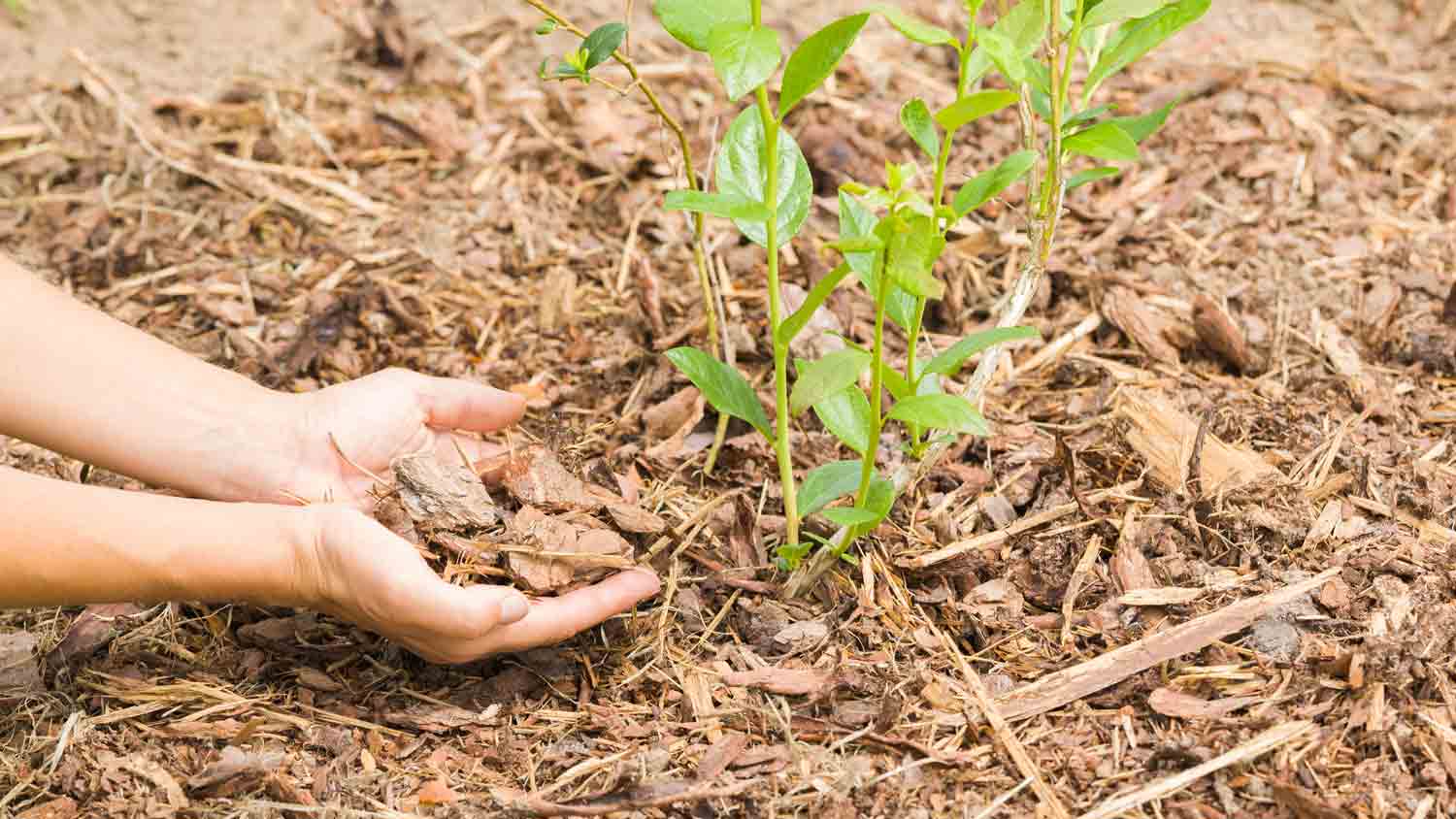
Shredded bark can be one of the most attractive mulches for your garden. Because you would rather spend time enjoying your vegetable garden, you’ll be glad to know that you won’t have to mulch as often when you use bark, as it breaks down more slowly than other mulches. Making your own mulch, in this case, requires a wood chipper or even a pair of pruning shears to break up the bark and wood.
Keep in mind that bark runs on the acidic side, which can impact sandy soil in a good way but can also cause damage to roots if the pH is too high. Check with your local mulch delivery pro to ensure it works with your garden.
| Pros of Bark and Wood Chips | Cons of Bark and Wood Chips |
|---|---|
| Budget-friendly options from the garden store or the DIY route | Requires a wood chipper or labor-intensive breakdown |
| Balances moisture levels in the soil | Alters the pH of your soil |
| Insulates against the cold | Some wood varieties discourage seed growth |
| Thick layers can suppress weeds | Too thick a layer can block air and sunlight |
4. Hay or Straw
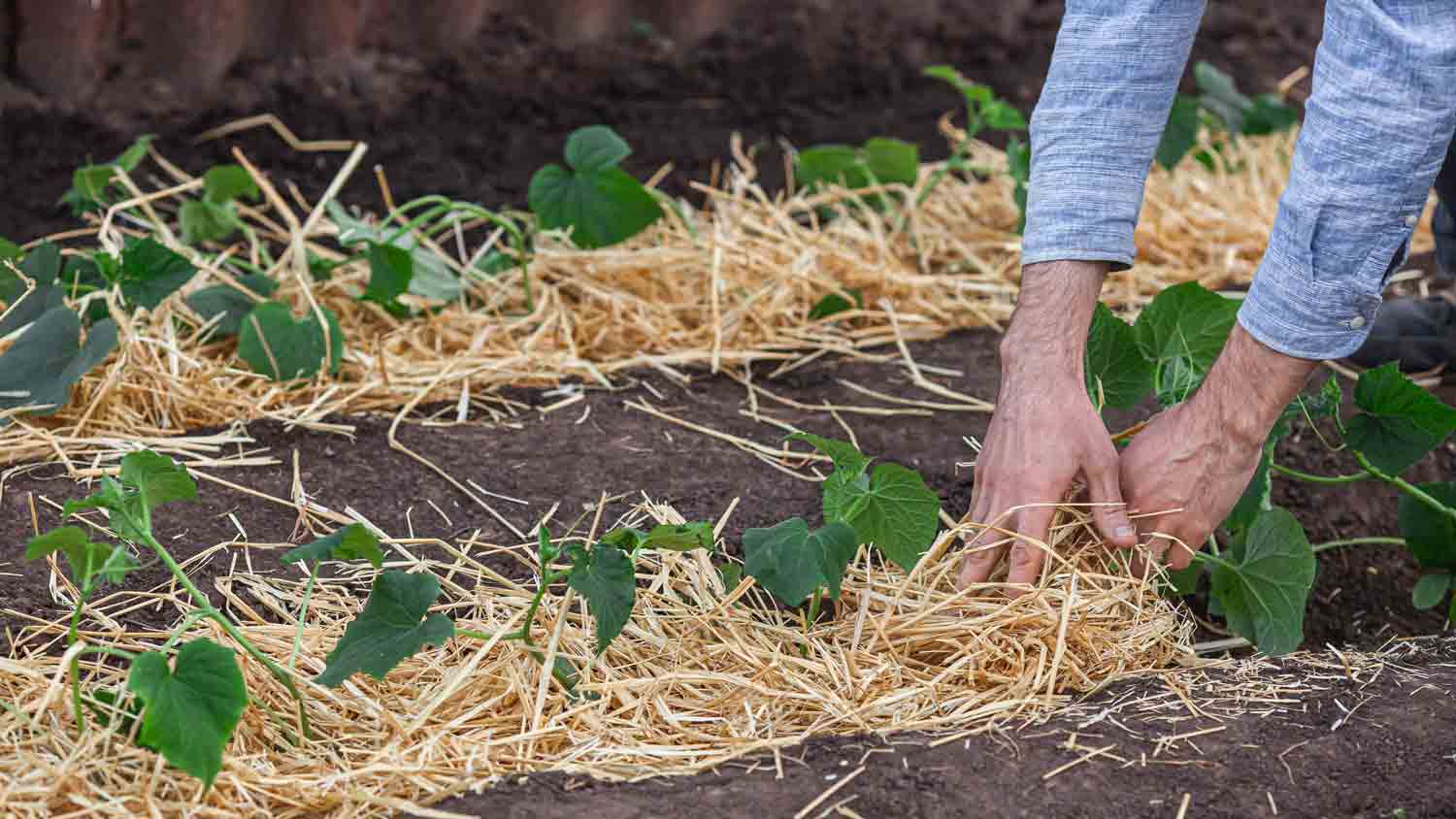
Both hay and straw break down quite quickly, but not as quickly as grass clippings or leaves. Besides, hay and straw exude a sweet, earthy smell after a noonday rain. Just make sure your hay or straw hasn’t been sprayed with pesticides before laying it around your plants. It can cause problems for your veggies.
| Pros of Hay and Straw Mulch | Cons of Hay and Straw Mulch |
|---|---|
| Lasts longer than other varieties | May be sprayed with pesticides |
| Easy to spread on flat ground and sloped yards | Can throw off soil's pH and nitrogen levels |
| Insulates the earth against heat and cold | May attract termites or rodents |
| Encourages healthy drainage | May blow away when not weighted down |
5. Cardboard
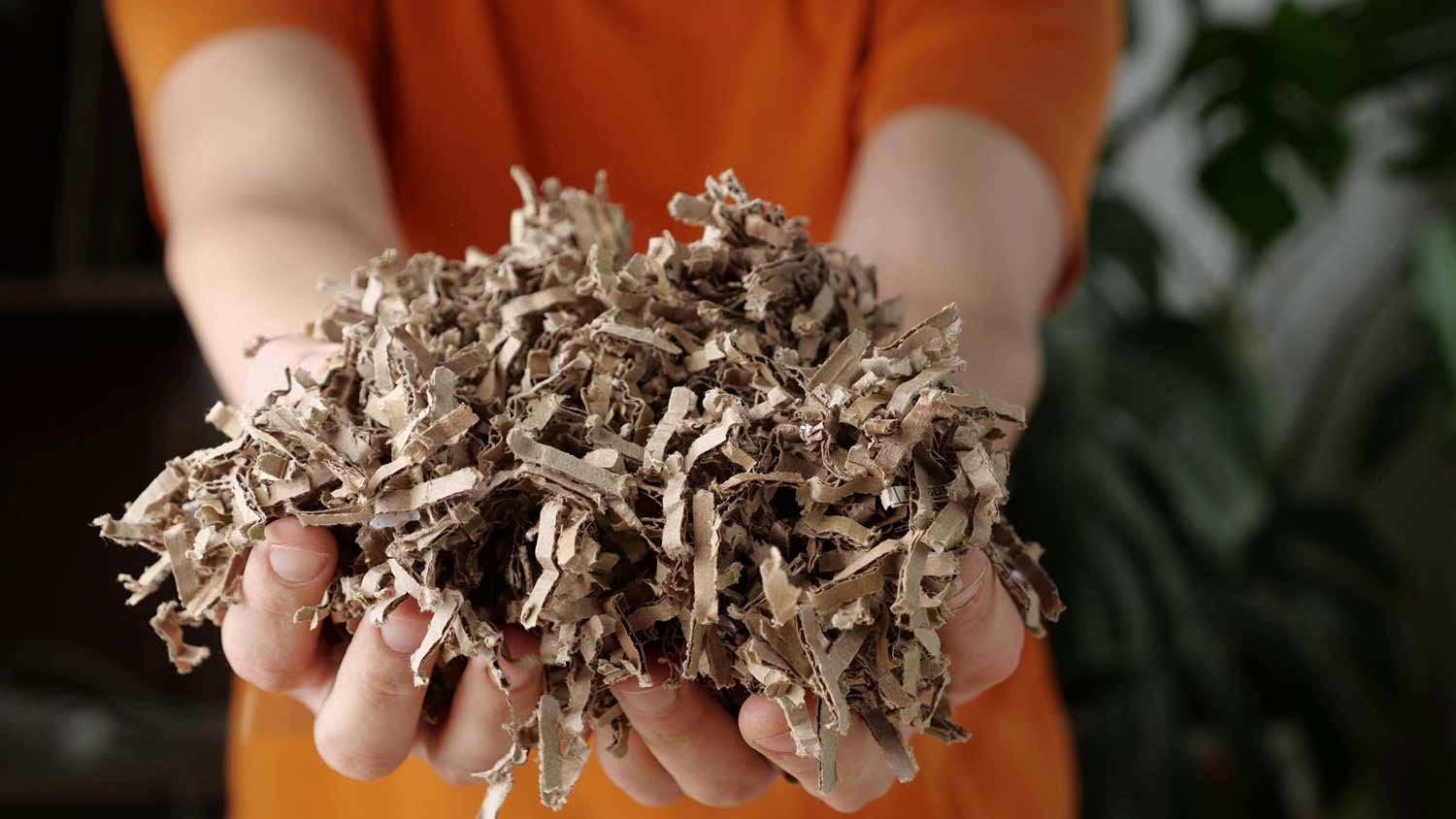
You may be surprised to know that cardboard makes an excellent mulch for your vegetable garden. Your homeowner’s association might not love the look of it, but it’s a great way to give new life to unused boxes. It also can add nutrients to the soil and suppress weeds.
As good as it is, cardboard needs to be wet before laying it around your vegetable plants. It will quickly decompose while also preventing it from blowing into your neighbor’s yard.
| Pros of Cardboard Mulch | Cons of Cardboard Mulch |
|---|---|
| Discourages weed growth | Unattractive and may need a top layer |
| Very budget- and DIY-friendly | Can block out sunlight and airflow |
| Encourages earthworm habitats | Not ideal for new seedlings |
| Adds carbon in the spring and fall | May welcome termites and other wood-loving pests |
| Quickly decomposes |
6. Landscape Fabric
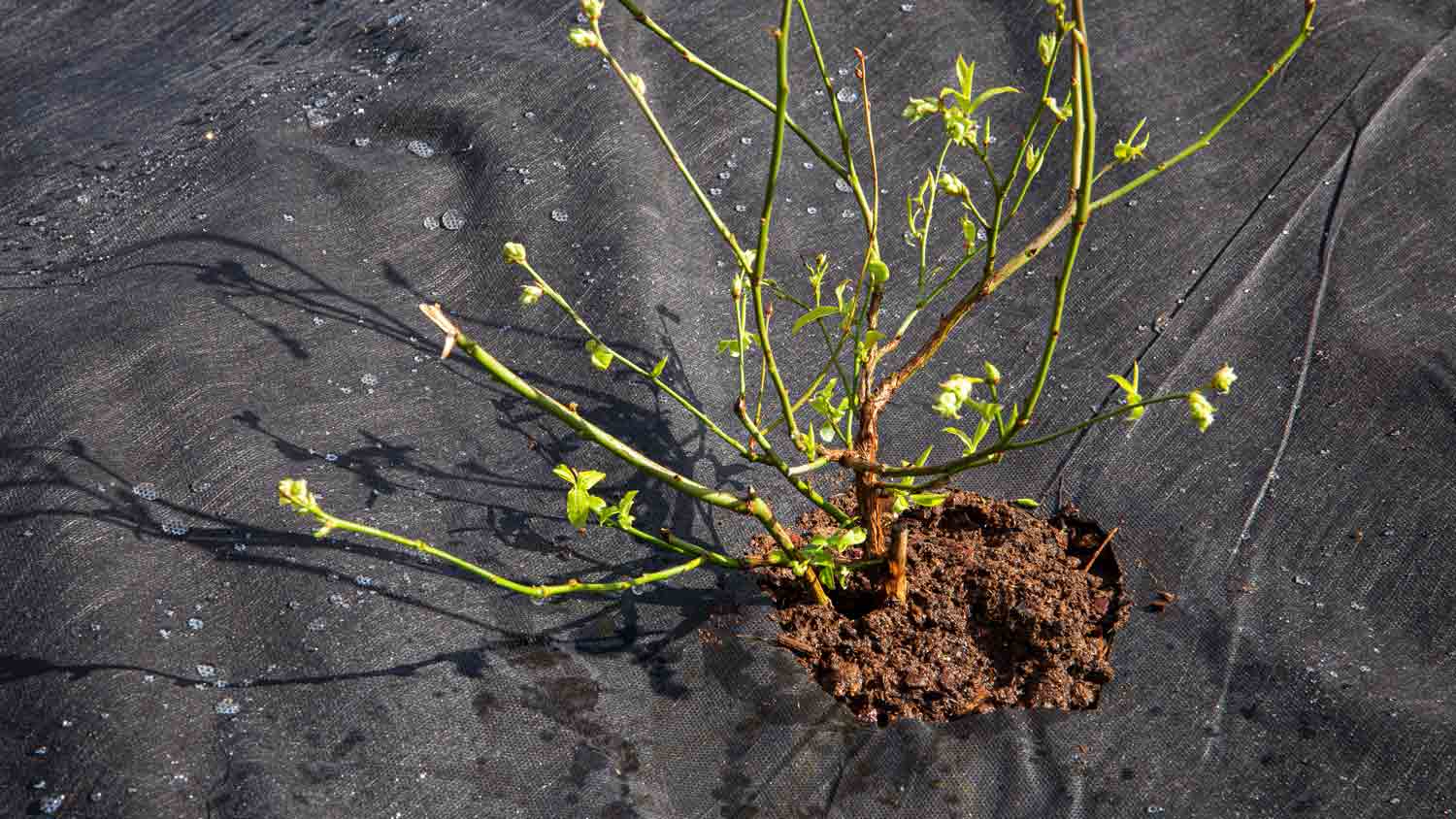
Unlike some other inorganic mulches, landscape fabric allows water to pass through without lifting or removing it altogether when you water. It also doesn’t contain any potentially harmful chemicals that may leach into the soil, like rubber mulch. However, make sure the fabric’s weave is tight because anything too loose will let the sun through, allowing weeds to pop up.
| Pros of Landscape Fabric | Cons of Landscape Fabric |
|---|---|
| Protects rocks and other inorganic mulches from sinking | Discourages the flow of air, water, and nutrients |
| Retains and regulates moisture in the soil | Requires replacement when the fabric clogs |
| Prevents and even stops some weed growth | Harder to change out compared to other mulches |
| Discourages pests and burrowing rodents | Not ideal for new seedlings |
| Prevents erosion on slopes |
Kathryn Pomroy contributed to this piece.





- How to Make Mulch for Your Yard
- What Mulch Is and How to Use It in Your Landscape
- Wood Chips vs. Mulch: Which Is Better for Your Yard and Garden?
- The Beginner-Friendly Guide to Growing the Greenest Grass
- Here’s How Long Grass Grows If You Don’t Mow Your Lawn (And Why You Really Need To)
- 6 Ways to Kill Grass On Your Lawn
- Can You Overwater Grass Seed? Tips for Getting Your Irrigation Just Right
- 11 Tips for Creating a Bountiful Backyard Garden
- How to Keep Grass From Growing on Fence Line: Grass Maintenance 101
- 8 Fertilizer Tips for a Showstopping Lawn and Garden











